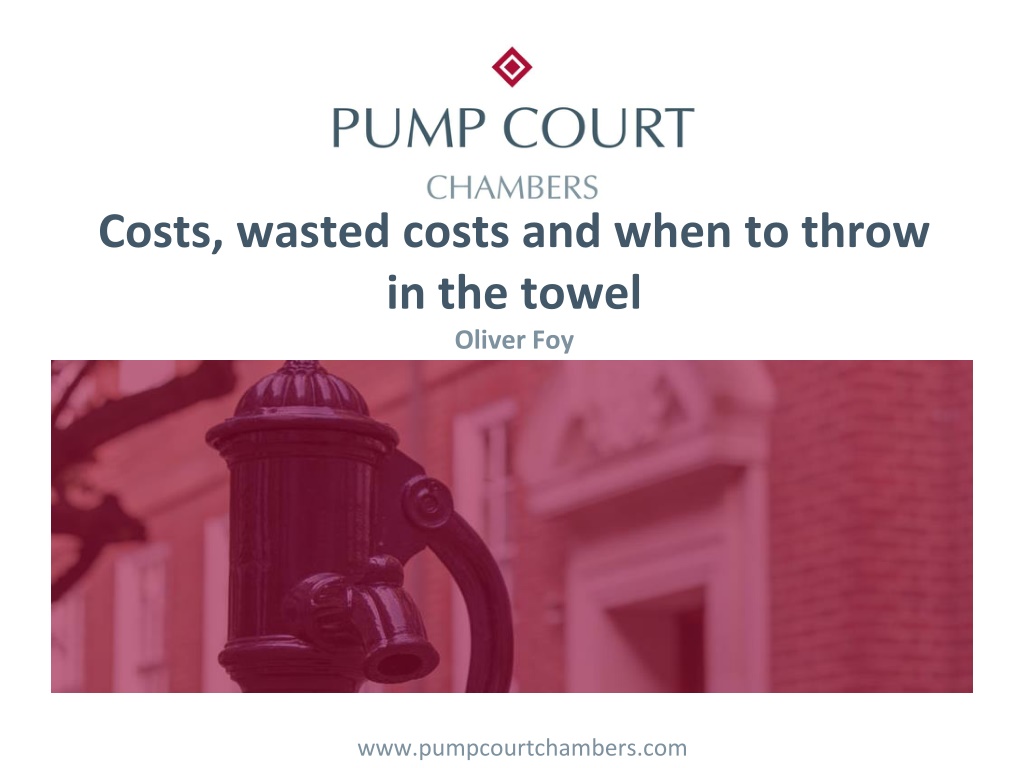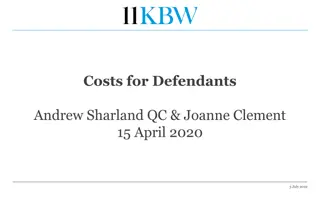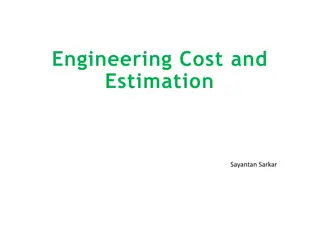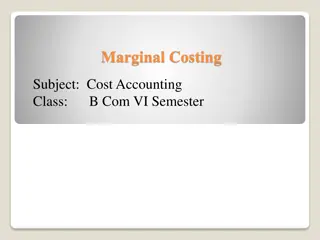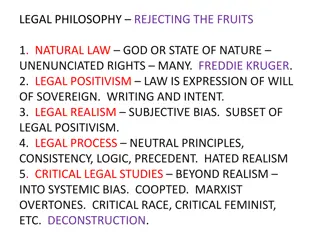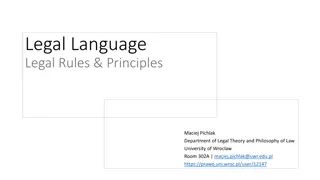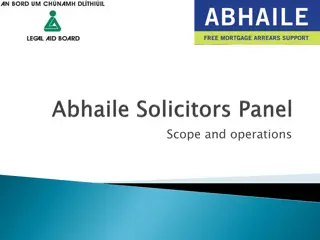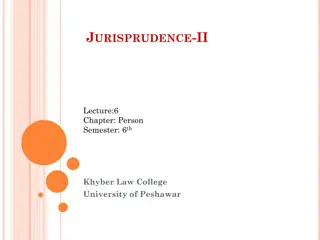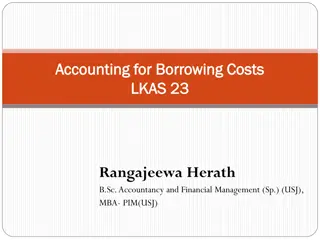Understanding Costs, Wasted Costs, and When to Seek Legal Guidance
Costs in legal proceedings can be exceptional rather than routine, with specific circumstances leading to cost orders by the Tribunal. Vexatious, abusive, or unreasonable conduct can result in cost implications, including orders for wasted preparation time. Presidential guidance helps determine when such conduct warrants cost consequences. Examples from cases illustrate scenarios where parties acted unreasonably or dishonestly, leading to cost awards. Ensuring understanding of these aspects can help parties navigate legal proceedings effectively.
Download Presentation

Please find below an Image/Link to download the presentation.
The content on the website is provided AS IS for your information and personal use only. It may not be sold, licensed, or shared on other websites without obtaining consent from the author. Download presentation by click this link. If you encounter any issues during the download, it is possible that the publisher has removed the file from their server.
E N D
Presentation Transcript
Costs, wasted costs and when to throw in the towel Oliver Foy www.pumpcourtchambers.com
Costs in the ET Rule 76 Costs are the exception not the rule. Tribunal has the power to make a costs order in 5 circumstances: Party has acted vexatiously, abusively, disruptively or otherwise unreasonably. No reasonable prospect of success. Application to adjourn less than 7 days before the hearing. Breach or adjournment. Unfair dismissal final hearing (mandatory). Rule 77 28 days.
Presidential Guidance Vexatious, abusive, disruptive or unreasonable? Each case will turn on its own facts. Examples from decided cases include that it could be unreasonable where a party has based the claim or defence on something which is untrue. That is not the same as something which they have simply failed to prove. Nor does it mean something they reasonably misunderstood. Abusive or disruptive conduct would include insulting the other party or its representative or sending numerous unnecessary e- mails. Quantum? Broadly speaking, costs orders are for the amount of legal or professional fees and related expenses reasonably incurred, based on factors like the significance of the case, the complexity of the facts and the experience of the lawyers who conducted the litigation for the receiving party. If the criteria are met, the Tribunal is at the threshold for making an order. It will decide whether it is appropriate to order payment. It will consider any information it has about the means of the party from whom payment is sought, the extent of any abusive or unreasonable conduct, and any factors which seem to indicate that the party which is out-of-pocket should be reimbursed. For example, sometimes it becomes clear that a party never intended to defend on the merits (that is, for example, whether the claimant was unfairly dismissed), but pretended that it was doing so until the last minute, causing the claimant to use his or her lawyer more, before conceding what was really always obvious.
Preparation time orders An order that the paying party makes a payment to the receiving party in respect of the receiving party's preparation time while not legally represented. "Preparation time" means time spent by the receiving party working on the case, including time spent by any of their employees or advisers, but does not include time spent at a final hearing. Either a costs order or a preparation time order.
Examples NB, costs awards do not operate by precedent. Daleside Nursing Home Ltd v Mathew UKEAT/0519/08 lying. Kenny v Five Star Taxis Ltd ET/3307584/2020 unreasonable defence (employer alleged employee had resigned despite letter clearly stating he had been made redundant). Kopel v Safeway Stores plc [2003] IRLR 753 unreasonable refusal of settlement offer. Keane v Investigo and others UKEAT/0389/09 no genuine interest in accepting a job offer. Tan v Copthorne Hotels Ltd ET/2200986/17 prolific covert recordings.
Wasted costs Rule 80. Improper, unreasonable or negligent act or omission. Unreasonable to expect receiving party to pay after costs incurred. Does not apply to an employee representative. Ridehalgh v Horsefield and another [1994] Ch 205 1. Did the representative act improperly, unreasonably or negligently? 2. If so, did that conduct result in the party incurring unnecessary costs? 3. If so, is it just to order the representative to compensate the party for the whole or part of those costs?
Privilege Privilege may prevent representative from explaining their case. Seek waiver, subject to legal advice and even offer to pay for it. Recent example.
Wasted costs examples Employment Rights Advice Ltd v Vernon and Volksmaster Ltd UKEAT/0072/18 ERA Ltd misled the tribunal by incorrectly stating that an application for fee remission had been made. Dimayuga v Epsom & St Helier University Hospitals NHS Trust ET/2300197/18 withdrew at 10pm on the day before the final hearing despite having been put on notice 5 days earlier that the client would not attend. Godfrey Morgan Solicitors Ltd (In a matter of a Costs Order) v Cobalt Systems Ltd UKEAT/0608/10 solicitors did not inform the other side that the claim had been withdrawn until a few days before the hearing.
The application Reasons (Kite v Clark [2022] EAT 194). Schedule of costs. Representations in response. 20k unless detailed assessment (Rule 78). Not applicable for wasted costs. Wasted costs application must itself be proportionate.
When to throw in the towel Risk. Rule 51. Promptness. Seek agreement not to pursue costs.
o.foy@pumpcourtchambers.com www.pumpcourtchambers.com
